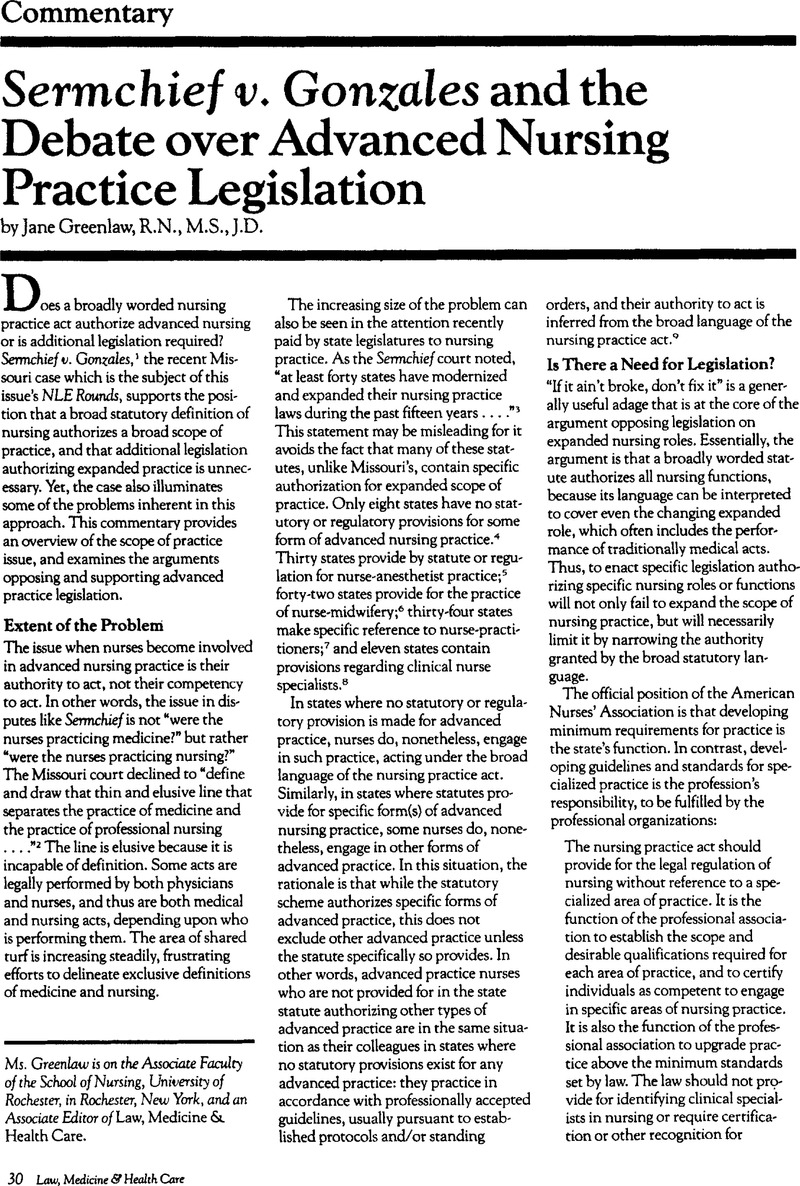Crossref Citations
This article has been cited by the following publications. This list is generated based on data provided by Crossref.
Cohn, Sarah D.
1984.
Prescriptive Authority for Nurses.
Law, Medicine and Health Care,
Vol. 12,
Issue. 2,
p.
72.
Greenlaw, Jane
1984.
Nursing Negligence in the Hospital Emergency Department.
Law, Medicine and Health Care,
Vol. 12,
Issue. 3,
p.
118.
Andrews, Lori B.
1986.
Health care providers: The future marketplace and regulations.
Journal of Professional Nursing,
Vol. 2,
Issue. 1,
p.
51.
Yorker, Beatrice Crofts
1989.
Scope of Practice.
AAOHN Journal,
Vol. 37,
Issue. 2,
p.
80.





